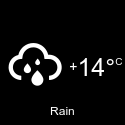Online shopping is a convenient and common way to shop for many of us these days. Whether you shop online all the time or only occasionally, there are some things you can do to keep yourself safe from scammers.
Aside from best practices like choosing unique, complex passwords, avoiding public Wi-Fi and limiting how much information you give out to retailers, there are a few scams you should be aware of.
■ Spoofed site scam
Scammers often create fake webstores to mimic well-known retailers’ sites and fool you into sharing contact information or credit card details. Even though a poorly designed, unprofessional site with broken links typically signals a fake website, it’s not enough to assume a nice-looking site is safe.
When you see a locked padlock symbol in the address bar, that’s a good sign, but make sure the name of the site matches what the security certificate has been issued to. You can check by clicking on the padlock symbol.
■ Unbelievable deal dilemma
While there are a lot of great deals to be found online, it’s still true that when prices seem too good to be true, they most likely are too good to be true – and a deal isn’t worth it if you never receive the goods.
Besides the low price itself, it’s a bad sign if the site asks you to pay upfront to unlock a discount or doesn’t allow you to pay with a more secure method like your credit card.
If you can’t find an address or phone number for the company, or the return policy is vague or non-existent, it’s safest to spend your money elsewhere.
■ One-time passcode ploy
Many of us use multi-factor authentication (MFA) to boost security for our online accounts, including shopping accounts at retailers.
MFA is a multi-step sign-in process that requires you to confirm your identity by providing a unique, temporary code that’s sent to you (e.g., by email or text), in addition to your password.
If a fraudster has your account details and tries to log in, they may try to scam you for the one-time code by pretending to be a legitimate company, but a reputable organization will never ask for this code, and you won’t receive one out of the blue.
Never share a one-time passcode with anyone who contacts you asking for one.
Find more information about avoiding cybercrime at bmo.com/security. (Source: News Canada)





